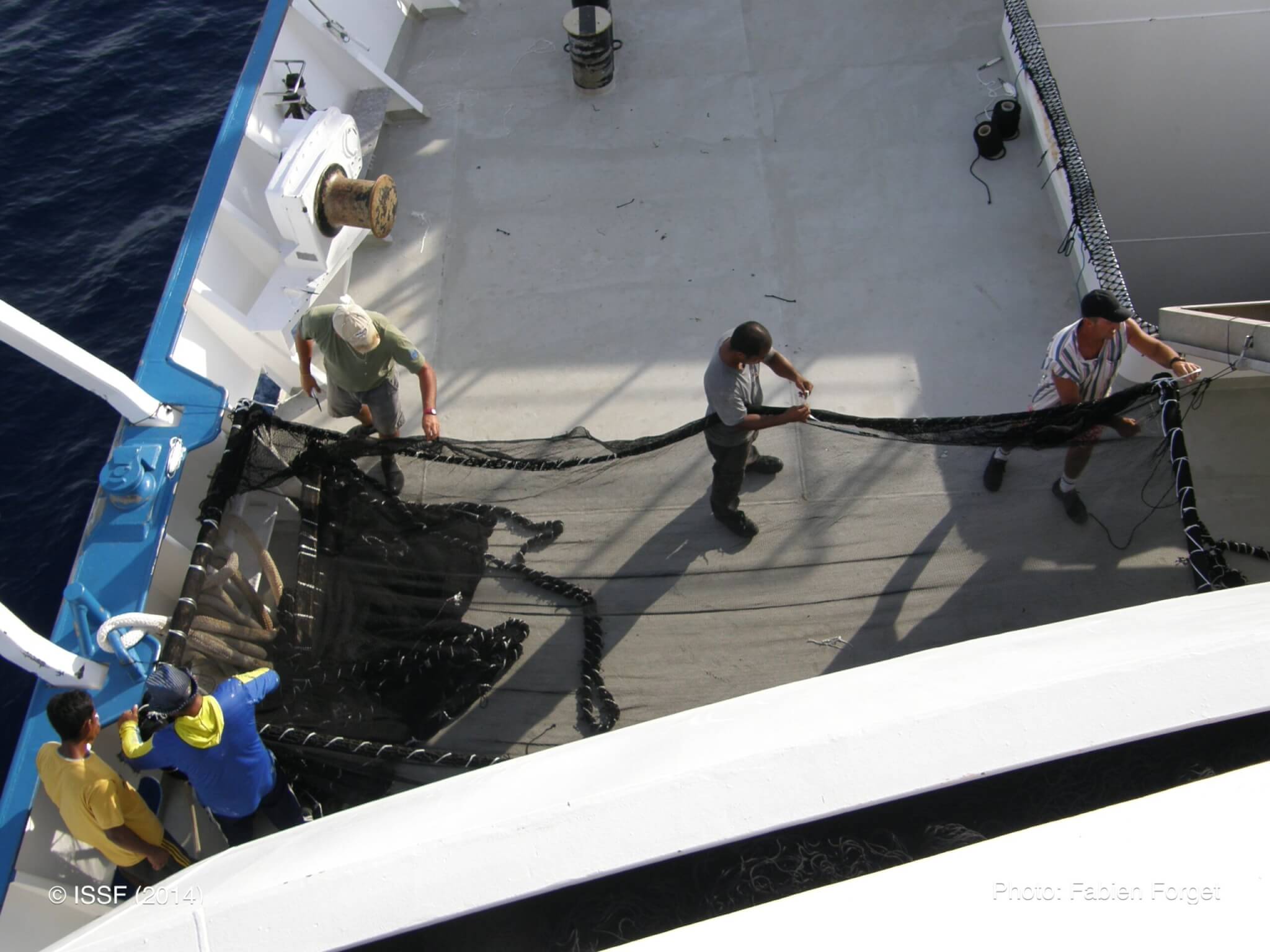
ISSF Report: 15 Tuna Stocks Not Meeting Criteria for Marine Stewardship Council (MSC) Fisheries Standard
Fisheries scientists in An Evaluation of the Sustainability of Global Tuna Stocks Relative to Marine Stewardship Council Criteria — a March 2023 report commissioned by the International Seafood Sustainability Foundation (ISSF) — found that eight out of 23 major commercial tuna stocks worldwide are successfully avoiding overfishing and maintaining target stock biomass levels when measured against the Marine Stewardship Council (MSC) Fisheries Standard.
The eight stocks are Western Atlantic skipjack, North Atlantic albacore, South Atlantic albacore, Eastern Atlantic bluefin, Western Pacific skipjack, Eastern Pacific yellowfin, Eastern Pacific skipjack and Indian Ocean skipjack. These stocks achieved a passing score for the Standard’s Principle 1, “Sustainable Fish Stocks,” which requires fisheries to be conducted in a manner that does not lead to overfishing or depletion of exploited populations. Six of those stocks also have fully implemented well-defined harvest control rules. However, failure to implement controls before rebuilding is required has led to an increasing number of stocks failing to meet minimum requirements on harvest control rules.
Our new report finds that overfishing is being avoided for 8 of 23 commercial tuna stocks worldwide, when measured against the @MSC_ecolabel Fisheries Standard. Share on XUnder the Standard’s Principle 3, “Effective Management,” RFMOs scored well overall, with the four tropical tuna RFMOs receiving passing scores. Most tuna RFMOs exhibited similar weaknesses in compliance and enforcement, while other weaknesses varied between RFMOs.
About the MSC Fisheries Standard
MSC is an independent, international, non-profit organization that oversees a program to assess global wild-capture fisheries and certify them as “sustainable” if they meet its Fisheries Standard criteria. In the previous January 2022 edition of the report, only six stocks passed Principle 1. In this year’s report, two additional stocks received a passing score. Principle 3 evaluations remained unchanged for the most part.
About the Report
An Evaluation of the Sustainability of Global Tuna Stocks Relative to Marine Stewardship Council Sustainability Standard takes a consistent, comprehensive approach to scoring tuna stocks based on certain components of the MSC standard. Updated regularly since it was first published in 2013, and organized by individual tuna stock and tuna RFMO, the report is designed to:
- Provide a basis for comparing stock scores and tuna RFMO scores as assessed by the same experts
- Become a useful source document for future tuna certifications or in the establishment of tuna Fishery Improvement Projects (FIPs)
- Prioritize ISSF projects and advocacy efforts against initiatives that will improve fisheries’ low performance indicator scores
The scores in the report focus on stock status (MSC Principle 1) and the international management aspects relevant to RFMOs (part of MSC Principle 3) and are based on publicly available fishery and RFMO data. Each of these Principles is evaluated in relationship to Performance Indicators (PIs) within each Principle. The Evaluation report also includes detailed remarks on each stock, evaluations of the five RFMOs, and comprehensive reference citations.
MSC Principle 1
The MSC Principle 1 states: “A fishery must be conducted in a manner that does not lead to overfishing or depletion of the exploited populations and, for those populations that are depleted, the fishery must be conducted in a manner that demonstrably leads to their recovery.” The authors attribute stocks with failing scores to poor stock status, the lack of well-defined harvest control rules, and/or the lack of effective tools to control harvest. Six of the 23 stocks have fully implemented well-defined harvest control rules, and there has been progress towards this aim by all RFMOs.
Regarding stocks receiving passing scores:
- Among nine tuna stocks in the Atlantic Ocean, four received an overall principle-level passing score: Western skipjack, Northern albacore, Southern albacore, and Eastern bluefin (the only bluefin stock to receive a passing score).
- Among nine tuna stocks in the Pacific Ocean, three received overall principle-level passing scores: Western skipjack, Eastern yellowfin and Eastern skipjack.
- Among four stocks in the Indian Ocean, one received an overall principle-level passing score: skipjack.
Regarding stocks receiving failing scores:
- In the Atlantic, yellowfin, bigeye, Eastern skipjack, Western bluefin, and Mediterranean albacore all received principle-level failing scores.
- In the Pacific, six stocks received overall principle-level failing scores: Western yellowfin, Western bigeye, Eastern bigeye, Northern albacore, Southern albacore, and Pacific bluefin.
- In the Indian Ocean, yellowfin, bigeye and albacore all received overall principle-level failing scores.
- Southern bluefin also received an overall principle-level failing score.
MSC Principle 3
The MSC Principle 3 states: “The fishery is subject to an effective management system that respects local, national, and international laws and standards and incorporates institutional and operational frameworks that require use of the resource to be responsible and sustainable.”
One tuna RFMO — the Inter-American Tropical Tuna Commission (IATTC) — received unconditional passing scores for all seven performance indicators under Principle 3. The other three tropical tuna RFMOs (ICCAT, IOTC and WCPFC) received overall principle-level passing scores from the report’s authors. As in the 2022 report, CCSBT did not receive a passing score under Principle 3.
While the report focuses on tuna stock status and sustainability as well as on RFMO policies, it does not address national or bilateral management systems, or gear- or fleet-specific ecosystem impacts — all of which are also considered within the MSC assessment methodology.
Since 2011, ISSF has been an active stakeholder in MSC tuna fishery assessments and certifications. ISSF’s strategic objective is to develop and implement verifiable, science-based practices, commitments, and international management measures to help all tuna fisheries become capable of meeting and maintaining the MSC certification standard.
An Evaluation of the Sustainability of Global Tuna Stocks Relative to Marine Stewardship Council Sustainability Standard was authored by Paul A. H. Medley and Jo Gascoigne. In October 2022, MSC updated the criteria for its standard in announcing the Fisheries Standard 3.0. The ISSF report does not reflect the updated Standard.


